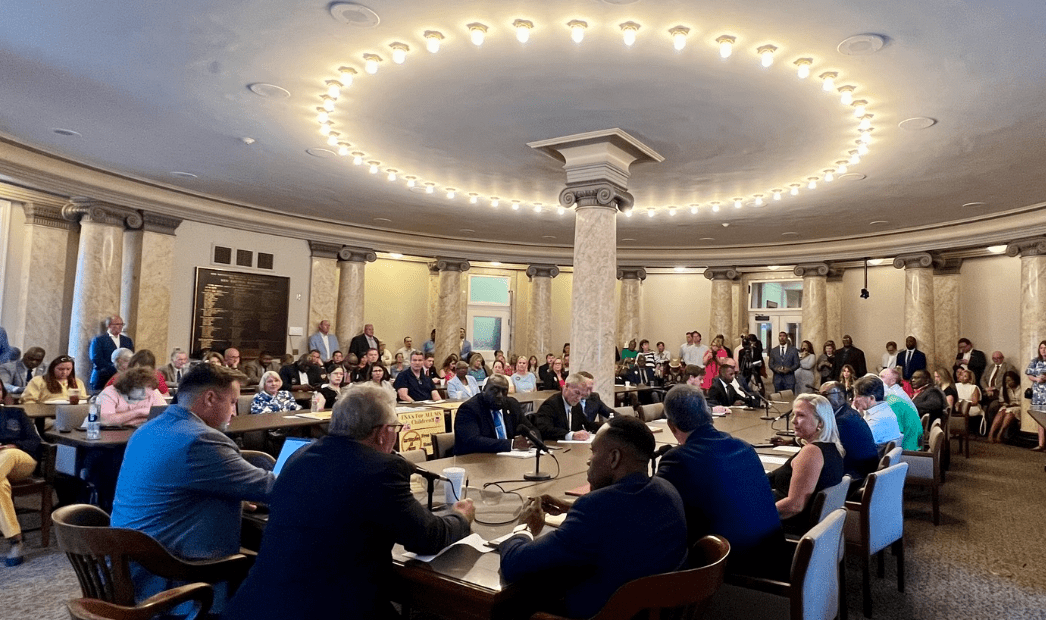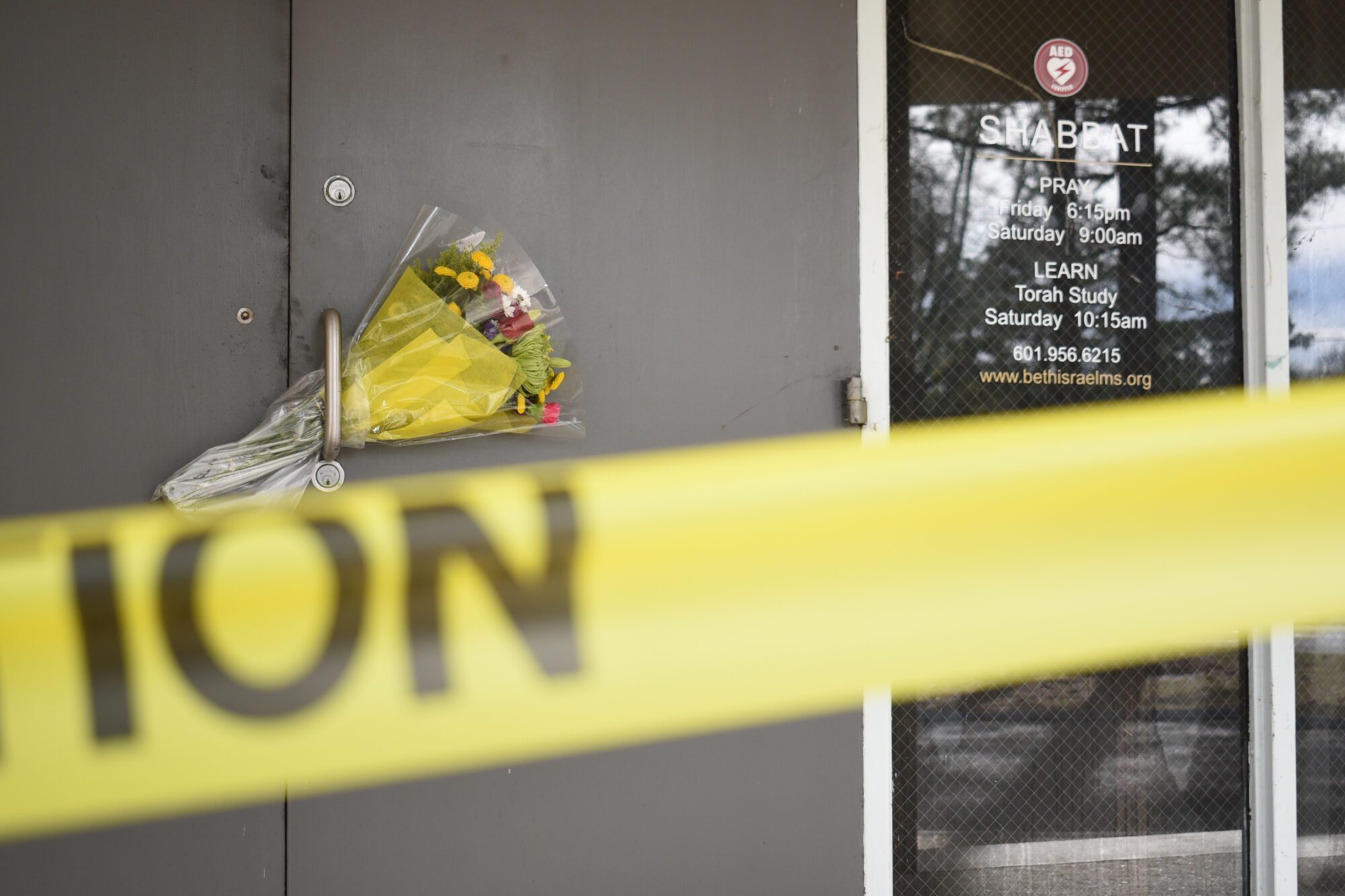
(Photo from Speaker Jason White on Facebook)
Listen to the audio version of this article (generated by AI).
- As lawmakers continue discussions on expanding school choice, MAIS warns not to “destroy the agility” of independent schools while MHSAA expresses concern unethical athletic recruiting.
The Mississippi House Education Freedom Select Committee held its third hearing on Thursday at the state Capitol as lawmakers continue to consider ways to expand school choice in the state.
The information gained through the hearings will be used to draft legislation during the 2026 legislative session.
First to address the committee this week was Barrett Donahoe, the executive director of the Mid-South Association of Independent Schools. He said the organization supports educational choice but advised against attaching requirements to funding for private schools.
Donahoe told lawmakers that the organization operates differently from public schools and should not have the same requirements as government-funded schools. His members worry that linking requirements to public schools would “destroy the agility” of independent schools.
Three areas where Donahoe said Mississippi should not force requirements on private schools are in admission standards, accountability, and curriculum and instruction.
Donahoe said admission standards should be left up to individual schools. If public funds were attached to admission, it would lead to the “erosion” of those standards, he said. Before admission to many schools in MAIS, students must test at grade level, not have behavioral issues, and have the ability to pay tuition, although at some schools, upwards of 50 percent of students receive scholarships or financial aid.
When it comes to accountability, Donahoe testified that public schools and private schools have different standards. While state-funded schools require mandated testing, which he referred to as teaching to the test, independent schools stress “holistic learning.”
Members of MAIS also worry that accepting state money with additional requirements could mean losing curriculum and instruction freedom. Donahue described that concern as a “non-negotiable for us.”
“So, you’re saying we’ll take the money, but don’t want the requirements?” asked State Rep. Jeffrey Hulum III (D).
“Yes,” said Donahoe.
Donahoe also mentioned that MAIS schools allow for religious clubs, such as Kids for Christ. Rep. Hulum asked if member schools would accept children who are agnostic or atheist or LGBTQ youth. Donahoe said yes, with the hopes of introducing the students to Christ.
“We would hope they reach for Christ when they are in our school,” he said.
Republican members on the committee stressed the successes of private schools, pointing to the high number of professionals who have graduated from the institutions. Donahoe said students from MAIS institutes are often accepted into Ivy League universities and many are professionals or high-ranking military officials.
When asked about the cost associated with attending member schools, Donahoe said the costs range between $4,000 to $19,000, with the average between $7,200 and $7,500.
Committee co-chair State Rep. Jansen Owen (R) stressed that for some families, tuition payments are a sacrifice.
When questioned about the accountability standards for MAIS member schools, Donahoe said each school is given a five-year accreditation and must meet MAIS standards. The organization has severed relationships with schools that do not meet its standards, he said.
Following Donahoe, the House committee heard from Mississippi High School Activities Association President Chad Harrison. He warned lawmakers that expanded school choice could harm some schools, saying that it could lead to more unethical recruiting among public schools in terms of athletics. Harrison said it is already difficult to prove unethical high school recruitment because it basically is one person’s word against another.
Harrison used the analogy of speed limits to make his point, saying if the speed limit is 70 mph, many people will push 74 mph, but some motorists see it as only a suggestion and go 85 or 90 mph.
“I fear we’re going to have a lot of 85 to 90 mph,” he said.
MHSAA’s Assistant Director Tim Shramek told the committee that in Tennessee, which has school choice, small school districts do not have a chance at winning championships. He said in some districts, 60 percent of athletes do not live in the district where they play.
He also testified that school choice could upset the balance of competition. If a student is a star baseball player, but his team is only winning half its games, that student will transfer to a winning school.
“We could see students transfer from a B school district to a C school district to play sports,” Harrison added, noting that educating students is the purpose of schools.
Harrison said he also opposed legislation that would allow homeschool students to play for a public school as has been proposed by the House but blocked by the Senate. He argued that those students do not have the same accountability standards as public school students.
Mississippi State Board of Education member Mary Werner was up next at the House committee hearing. She told lawmakers that she was there to express her own opinion and not that of the Board of Education. Werner cautioned the members about making responsible laws.
“Remember,” she said, “Legislatures make the laws and then you live with them forever and ever.”
Werner said she is pro-school choice, noting that it is working in neighboring states and it would work in Mississippi, too. However, she expressed concern about special needs students. Werner does not want to see those students left behind if school choice is expanded.
She told lawmakers that if was her belief that school choice will increase competition among schools, which will lead to better outcomes.
“If you want good teachers, you pay them well. You pay good coaches,” she said, adding, “Everybody does better when there’s competition.”
Werner noted the strides Mississippi has made in education, saying the state is moving forward. She said continuous improvements must be made.
“You eat an elephant one bite at a time,” she said.











